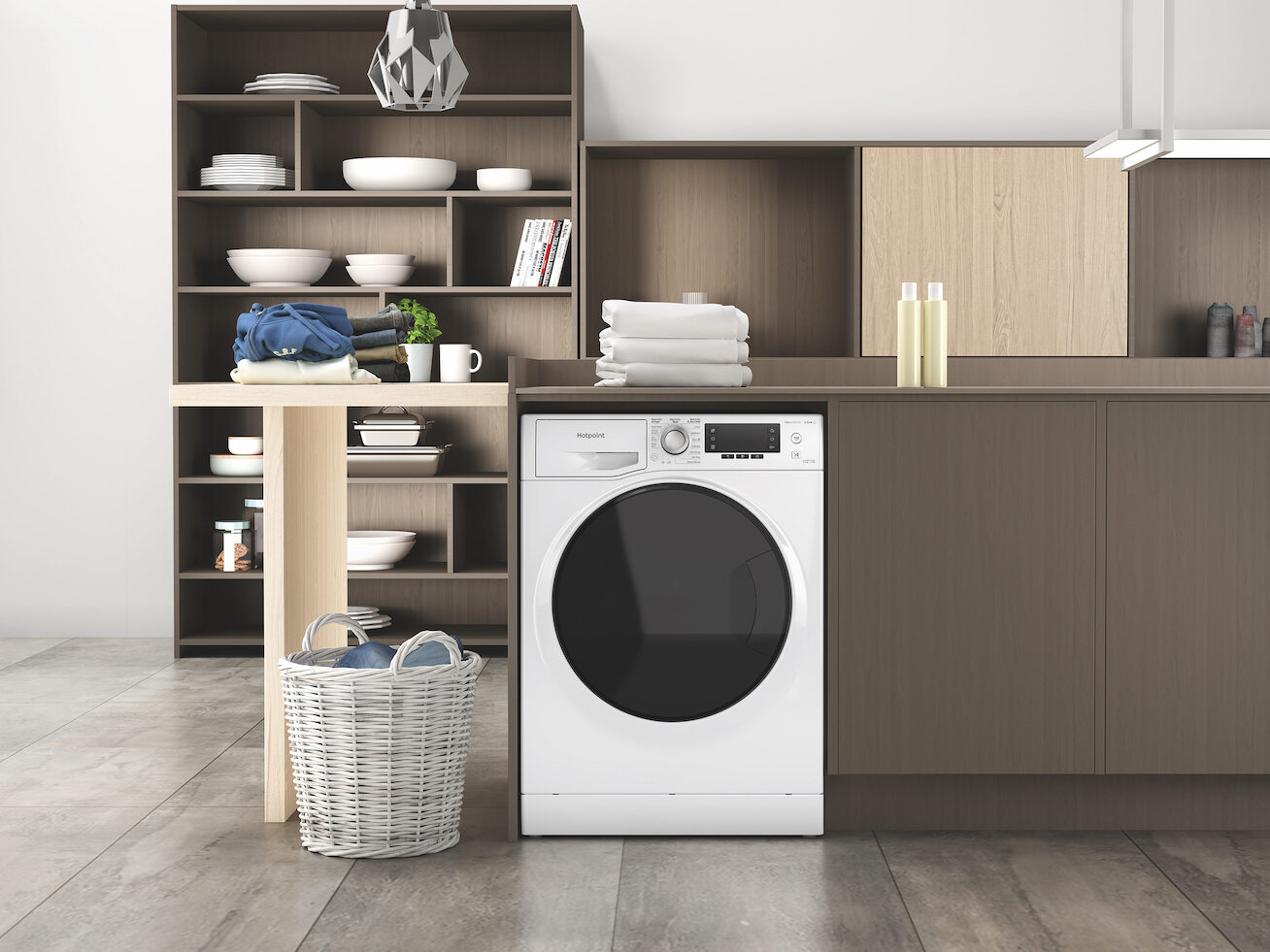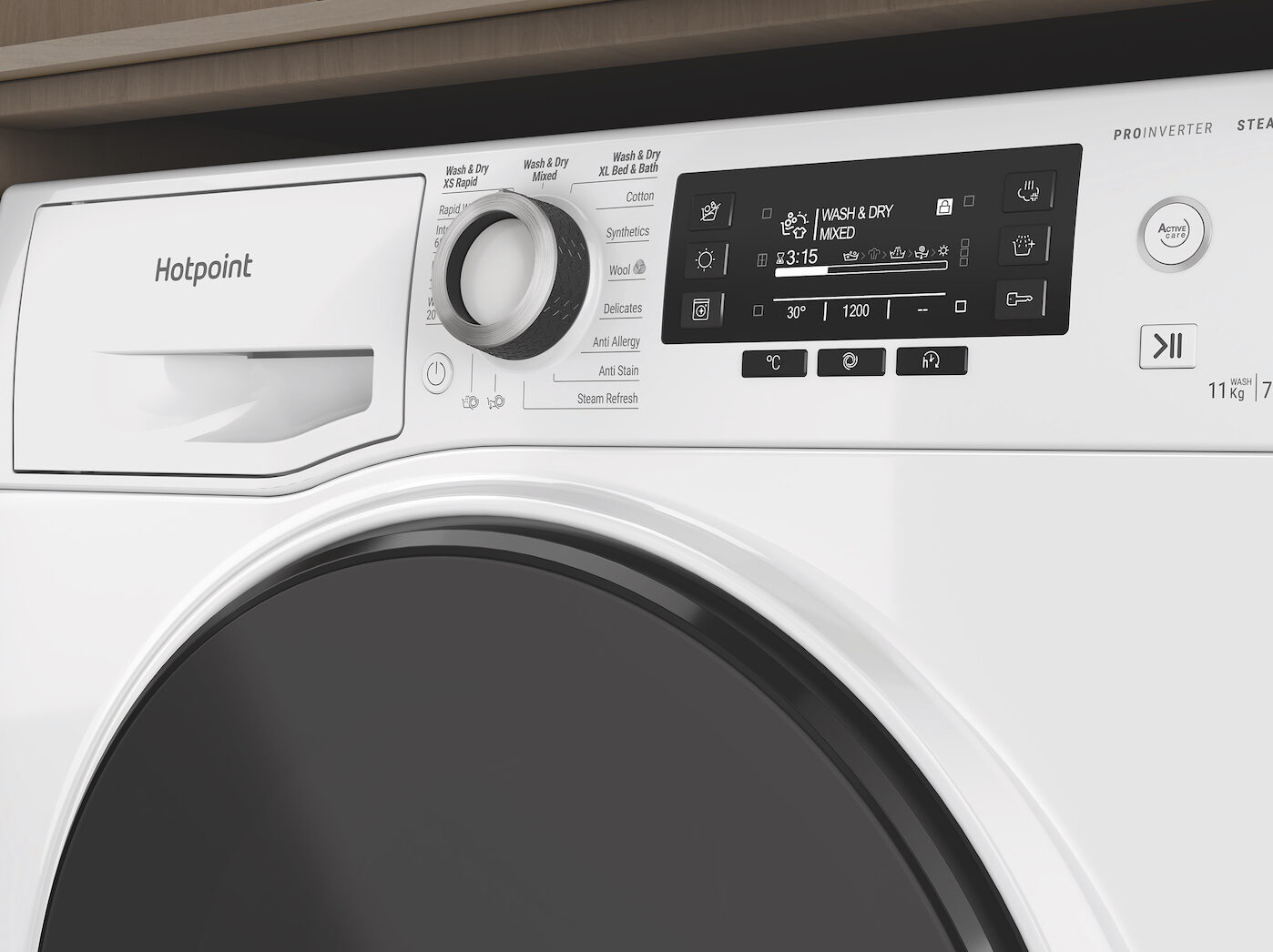
Image Credit: Hotpoint
Energy price cap – how to run your home appliances more efficiently
Thanks to a change in the energy price cap, the annual bill for a typical household has fallen to £1,923 as of Sunday 1 October, which is £577 lower than last winter. However, energy bills are forecast to increase again in the New Year, leaving many people looking for ways to reduce their gas and electricity outgoings.
To help in this area, Hotpoint has shared its money-saving tips when running your washing machine, tumble dryer and dishwasher. Just follow this advice from Vivien Fodor, Laundry Category Manager at the home appliance company, to ensure your appliances are running as efficiently and cost-effectively as possible.
Washing machine
“Cold washes strain your energy resources less, resulting in more pounds in your purse,” Fodor says. “If you’re worried that a cold wash won’t remove those pesky stains, try dabbing the garment with lemon juice and baking soda before loading into the machine.”
It’s also important to avoid running loads during peak energy hours. Depending on your tariff, the most expensive time to run a washing machine is between 4.00pm – 7.00pm.
“Wash your clothes for less by waking up earlier and loading your laundry with breakfast, or a time that suits you outside of this peak,” Fodor advises.

Image Credit: Hotpoint
Tumble dryer
Putting dryer balls into the drum helps untangle laundry, and maximises warm airflow for a quicker and more efficient cycle.
“Not only that, but they help to prevent your laundry from creasing, meaning less ironing and cheaper energy bills,” says Fodor.
Cleaning out any lint build-up from the machine filter before running the dryer will increase hot-air flow, meaning faster drying times and a more cost-effective cycle.
Dishwasher
Failing to clean your dishwasher filter can cause limescale build-up, which can make your appliance less efficient to run, according to Fodor. To clean the filter, which is located at the bottom of the tub, remove it and wash in warm soapy water.
“Once that’s done, don’t forget to clean the remainder of the dishwasher as well. An effective way to prevent these obstructions is to sprinkle baking soda and a cup of white wine vinegar (both common, affordable household items) onto the bottom of the dishwasher before placing it on the hottest cycle,” she adds.
When it comes to loading the dishwasher, a common mistake is blocking the spray arms – the rotating plastic blades – which release the cleaning water. Keep these clear of items to ensure effective cleaning, and avoid having to run another wash cycle or rinsing everything with water.




